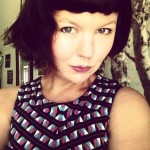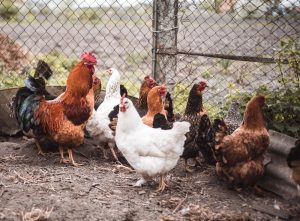 JOURNALIST RACHEL HILLS’ first book, The Sex Myth: The Gap Between Our Fantasies and Reality, tackles what she names (and shames) as “the sex myth” – that is, the belief we subscribe to which elevates sex as an act that is special, unique, and with the potential to be equally transcendent and catastrophic. Mixing hundreds of interviews with everyday people alongside critical analysis from Foucault to “Friends,” Hills carves out a new way of thinking about sex that, refreshingly, demands neither that we have more, less, nor a different kind. She hopes we can free ourselves from the newly-oppressive “sexual convention,” throw off our Fifty Shades-inspired chains, and stop believing the sex myth.
JOURNALIST RACHEL HILLS’ first book, The Sex Myth: The Gap Between Our Fantasies and Reality, tackles what she names (and shames) as “the sex myth” – that is, the belief we subscribe to which elevates sex as an act that is special, unique, and with the potential to be equally transcendent and catastrophic. Mixing hundreds of interviews with everyday people alongside critical analysis from Foucault to “Friends,” Hills carves out a new way of thinking about sex that, refreshingly, demands neither that we have more, less, nor a different kind. She hopes we can free ourselves from the newly-oppressive “sexual convention,” throw off our Fifty Shades-inspired chains, and stop believing the sex myth.
When you were writing The Sex Myth, did you spend much time imagining the potential counter-think pieces it might elicit?
It’s inevitable. These days we write on the Internet and we get real-time feedback. If you write enough on the Internet, you get pretty good at predicting the not-so-nice things people might say in response to what you’re saying. Often, when I was writing a sentence I would be thinking of the counter argument for that sentence. That’s partly who I am as a person. I see multiple sides of different issues. I’m not very dogmatic. I imagined people attacking me on a personal level — in fact, I’m still anticipating that.
I think if you’re a woman writing, full stop, but particularly if you’re a woman writing about sex, you can anticipate critique of your appearance. Someone is going to say that you’re only saying what you’re saying because you’re ugly and can’t get laid. And that’s even more so the case when you write a book that starts out by talking about how you couldn’t get laid! I assumed people would think I was only writing this because I’m a prude, or because of my own hang-ups. I knew there was a possibility people would say I’m “anti-sex.” I was very careful to shape my arguments so that it would be harder for people to say I was “sex negative.”
Were you nervous about going against, in some ways, the current liberal mainstream feminist flow of thought?
I don’t think I set out to do that. The idea of “sex positivity” is a really dominant one in feminism right now. The more I learn about it, the more I feel my book is sex-positive. Historically, in the US, there’s been this idea that women are not allowed to be sexual. Female sexuality has been oppressed. So there’s a tendency to react to that. We see that oppressive approach as bad, of course. But the response then becomes to say, “No, sex is good!” But to be sex-positive doesn’t mean you have to be having lots of sex. It’s advocating for an acceptance of a variety of different sexualities. It’s arguing to obliterate the hierarchies wherein some ways of being sexual are considered better than others. I think my book does that.
Did you feel pressured to reveal a lot about your own personal experiences in writing a book about other people’s sex lives?
I don’t really feel like I lay it all out there. I reveal some quite personal things about myself, but there’s not a lot in there. I might create a sketch of myself and tell a few pertinent points, rather than giving the entire picture of my sexual history. It was deliberate, as I didn’t want to tell all. I feel quite embarrassed by it. In my journalism I have tended to do more features than personal essays. I have felt, though, that through the publicity process I have laid myself a lot more on the line than I would have anticipated. It’s challenging, emotionally, to reveal the things about yourself that you’re most ashamed of. It’s also a little frustrating and tiresome, as I feel I’m constantly talking about myself in interviews and in the essays I’m writing. But I also feel like there’s a value in sharing that personal experience. If you can share who you are and how you felt, it gives the reader a place to connect with you. If you share the things about yourself that you are not comfortable with, it opens up permission for others to feel more comfortable about those things within themselves. The Sex Myth is a theory book above all else, but there are a lot of stories in there. That’s because I find theory books mentally taxing to read, and it was important to me to make the theory acceptable and interesting. I needed to take the theory and draw it back to real life.
You don’t talk about sex work in the book — although it seems to be there between the lines of what you argue about how we could better approach sex and sexuality. Why did you decide not to delve further into this area?
I see how the way society talks about sex works fits into the lines of my argument. We treat sex like “an act unlike any other” – and part of that is in the sex positivity movement – this idea that sex is amazing and the source of our freedom and we should all be doing it. The other side is one that I see coming through in anti-porn and anti-sex work debates. That side suggests sex is sacred and sex is dangerous, unlike other things, in that it accesses a deeper part of our souls. The sex myth is one of the reasons we think of sex work as being different to other jobs. I subscribe to the idea that sex work is a form of labor, and like all forms of labor it can be exploitative. I disagree that sex work taps in to a deeper part of the soul. There are lots of different types of labor that draw on people emotionally, or draw on parts of their heart and soul – like a waitress is paid to smile at you when she serves you your food.
What do you think of the argument that taking a “pro-sex work, pro-pornography” stance is really about complying with the patriarchal model in the hope of gaining male/social approval, and not a critical stance?
The idea is that women who associate with liberal feminism do so because they want to please men, rather than as a decision they’ve come to by thinking through the issues themselves. In the UK, they call it “fun feminism.” Many of my views would fall under “fun feminism.” I don’t see porn and sex work as inherently degrading. That’s not because I want to appear sexy to men, it’s because I’ve done my research and reading. I find the whole liberal/radical feminism divide challenging on a personal level, because I feel like I fall into both areas. A couple of people have said they found my book to be “really radical.” I find that positive, because to me it means there’s a strong critique in the book and it challenges accepted wisdom. One of the things I love about radical feminism is that it takes everything we experience in our lives into a political context. Nothing that we do is without meaning or without context. But I also identify with liberal feminists because I’m ultimately arguing for people to have freedom. Even if I don’t think we have free choice exactly and that our choices are shaped and determined by context, I also want people to be able to make those choices. We should be able to make choices and be critical of the context in which they’re being made.
You talk about realizing your feelings of inadequacy and unattractiveness stem from the pervasiveness of the Sex Myth and not from the facts of your actual sex life. Having recently watched the documentary “Hot Girls Wanted,” I wonder if that works the opposite way: Would you argue the girls that felt degraded by their experiences in amateur porn felt that way because of the sex myth’s impact on their psyche and not because of the facts of their experience?
We can’t extricate ourselves from the sex myth. But even if their response was partly due to the sex myth, I’d be wary of saying their feelings were not valid. If someone comes out of the porn industry and says they had a crappy experience, I take them as the expert on their experience.
Do you think being Australian allows you a certain unique outsider perspective on the US political view on sex and sexuality?
I think if I was born and raised in the United States, then I probably wouldn’t have written this book. The conservative religious purity narrative around sexuality is so strong here. I can imagine growing up here that you would be consumed by that and your analysis of power would be different. It does allow me to see that the two political “sides” — the conservative and liberal — mirror each other in that they both hold this fundamental belief in the specialness and power of sex. Both parties, the Democrats and Republicans, are more conservative politically than the ideas I talk about in my book. I critique the liberal ideology, because I’m a liberal. I outright reject the tenets of conservative thought, and so they’re not as interesting to me. Whereas the orthodoxies of liberalism and feminism are things I do believe and they affect me on a deeper level. I don’t spend much time talking to people I outright don’t agree with. I’m really interested in those tensions that occur between myself and those people I pretty much agree with. I want to improve the liberal conversation, rather than battle against the people I will never agree with and who will never agree with me.
The Sex Myth: The Gap Between Our Fantasies and Reality is out today.
















